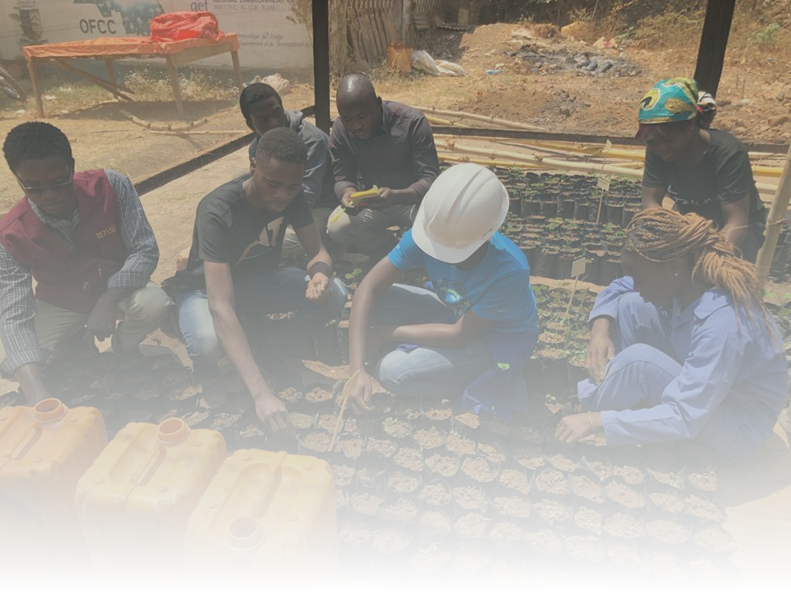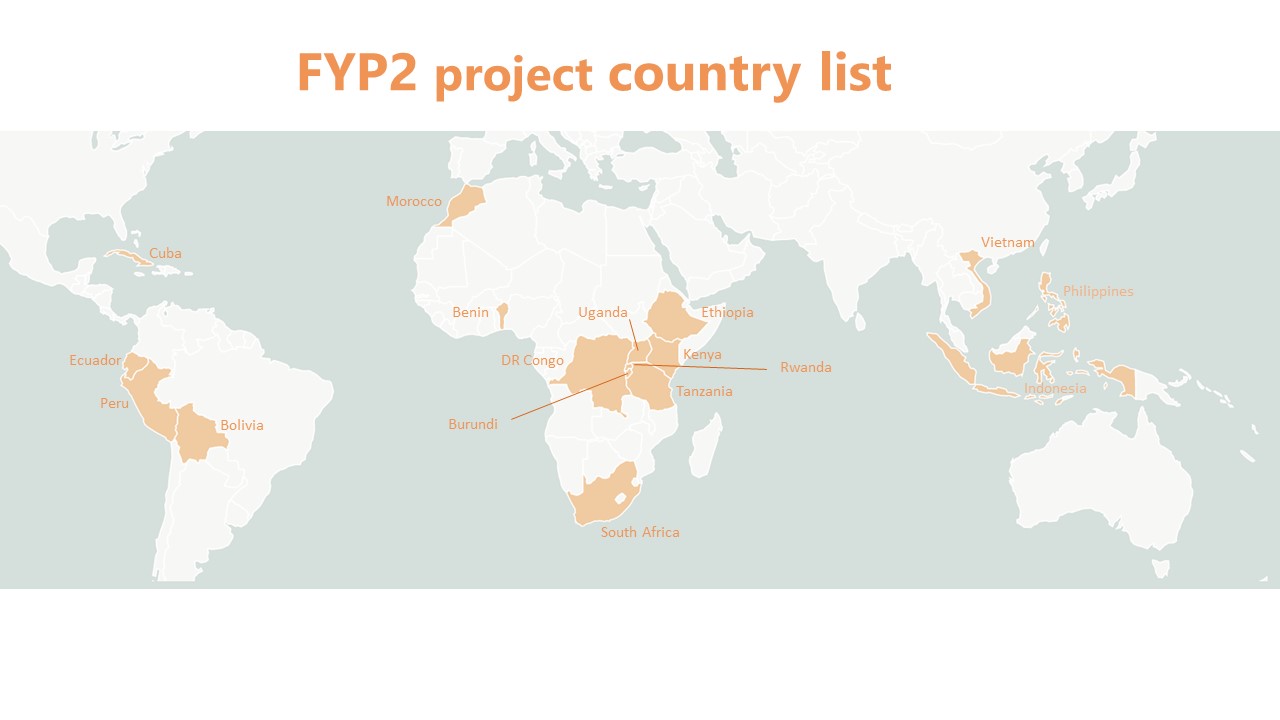Our website uses cookies to improve your experience. To make optimal use of this website please agree to our cookie policy.
SI 2023
Short Initiatives (SI) 2023
Starting
01/09/2023
Period
Maximum duration of 2 years
Deadline
16/03/2023

Starting
01/09/2023
Period
Maximum duration of 2 years
Deadline
16/03/2023
Short Initiative (SI) projects are short-term projects that aim to explore, build and deepen academic/scientific collaborations among diverse teams of academics and researchers. They are very accessible, particularly for new/young project promoters that are eager to go for a first experience as promoter of a VLIR-UOS project.
Like TEAM projects Short Initiatives focus on a sustainable development challenge, but within a shorter time framework and budget. The objective is the same: strengthen research and educational capacities of higher education and science institutions in partner countries and create the conditions for uptake of new and relevant knowledge, applications and/or services by academic, civil society, private and public actors.

An online information session took place on 6 December 2022. During this session, we presented the call and the application modalities:
1. SI 2023 Information Session - Basic info and formats
2. SI 2023 Financial guidelines intro
3. SI 2023 Information Session - Full Video
Another online information session took place on 9 June 2023. During this session, we presented ourselves and the steps to prepare for the start of your project.
1. SI - ITP 2023 Information Session - VLIRUOS and contracting
An application for SI involves both a Flemish and a local promoter, but it is the Flemish promoter who submits the application.
When submitting a project proposal, a promoter must meet both the internal criteria and regulations regarding the project promotership of their institution and the minimum conditions set by VLIR-UOS.
Specific details of the eligibility criteria and internal regulations regarding the project promotership of the respective Flemish universities have recently been under discussion. On 10 February 2023, the Bureau UOS took the following final decision regarding the calls SI 2023, ITP 2023, and PSP FYP2.
Flemish promoter:
For the Flemish Universities
The minimum conditions set by VLIR-UOS for a lead promoter from a Flemish university to submit a proposal are the following:
(1) ZAP: Zelfstandig Academisch Personeel (Independent Academic Personnel)
(2) ATP: Administratief en technisch personeel (Administrative and Technical Personnel)
For the Flemish universities of applied sciences and arts
For the Flemish universities of applied sciences and arts, most professors/lecturers might not have permission to be budget holder. Another person, e.g. the director, can be assigned as budget holder for the project.
Partner promoter:
A Flemish promoter can submit a maximum of 2 SI projects in case they have no ongoing SI 2022 or TEAM 2022 project.
The rule of a maximum of 2 projects applies to the lead promoter and, in case a postdoc submits as lead promoter, also to the ZAP member who is co-promoter. Co-promoters are only counted from the 2023 calls on, as the rule did not yet exist for the 2022 calls.
The lead promoter will be invited to confirm, when submitting the proposal in the VLIR-UOS tool, to meet both the internal and VLIR-UOS eligibility criteria and regulations.
This framework is considered a pilot project for the 2023 calls. There will be an evaluation of the impact of these new eligibility criteria on the number of proposals and their distribution.
Additional criteria
Higher education and science institutions located in one of the 17 project partner countries listed below may apply for SI projects:
Benin, Bolivia, Burundi, Cuba, DR Congo, Ecuador, Ethiopia, Indonesia, Kenya, Morocco, Peru, Philippines, Rwanda, South Africa, Tanzania, Uganda, Vietnam

Financial guidelines for proposal writing
The applicable budget lines are:
E.1. Coordination cost at the level of the Flemish institution (5% of the A-D total)
E.2. Coordination cost at level of the partner institution(s) (5% of the A-D total)
UPDATE: the budget format (Annex 2) was updated on 9 December. If you already downloaded the file before that date, please download the new version.
Who?
The Flemish promoter of the proposed SI project submits the application to the ICOS of the Flemish university (association) for quality control. The ICOS will validate and submit to VLIR-UOS.
How?
Project applications are submitted via an online submission tool.
If you already have access to this tool, you can click the “Apply now” button below. If you do not yet have access, and wish to create your project application, please contact the responsible person at the Flemish institution of your project application. They will grant you access to the tool.
Please note that we will also organise online trainings on the tool for submitting your proposal. You can register for the final training by clicking the link below:
You can find recordings of all previous trainings in the video manual library.
When?
Deadline March 16, 2023, 5pm (CET).